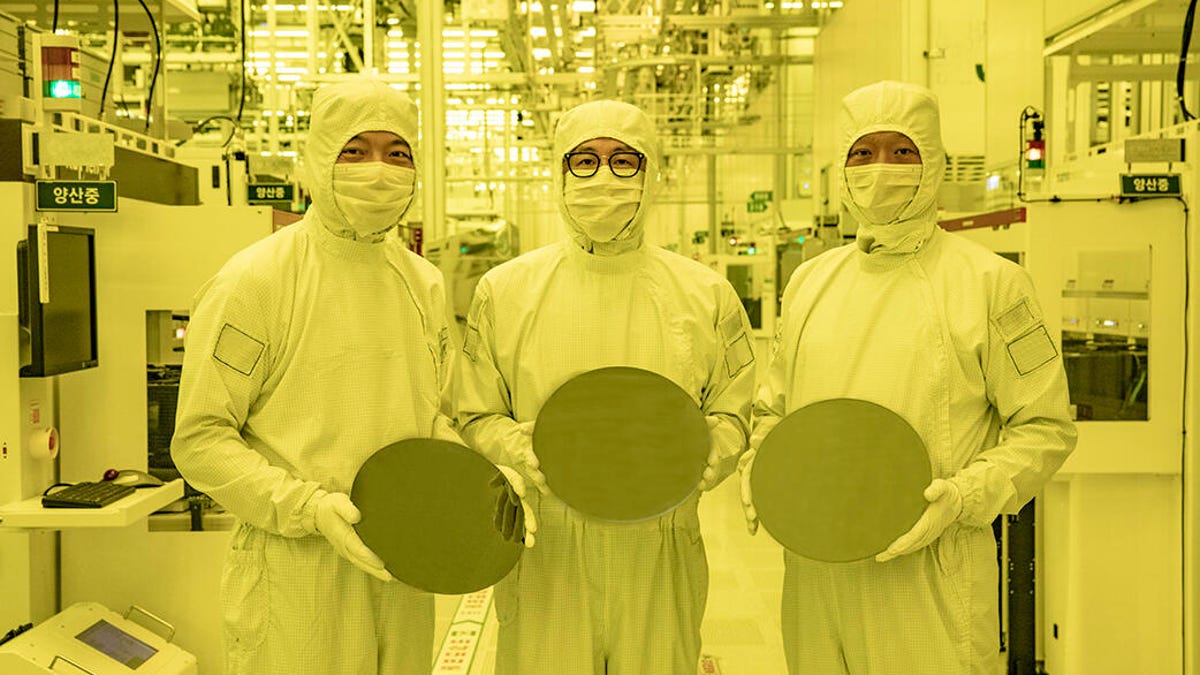Samsung Begins Mass Production of Advanced 3nm Chips
The new chips shrink surface area while boosting performance.

Samsung executives hold 3nm wafers.
Samsung announced Wednesday it had begun mass production of 3-nanometer processors, a faster and more efficient class of chips.
The advanced processor technology will reduce power consumption by 45% and surface area by 16% while improving performance by 23% compared with the 5nm process, Samsung said in a statement. The processor was previously expected to arrive in 2021 but was delayed until this year.
Transitioning to a next-generation manufacturing technology is extraordinarily complicated. Chips are made of billions of electronic components called transistors, each vastly smaller than a speck of dust. Progress comes by miniaturizing transistors so more can be squeezed onto a chip, increasing their speed and decreasing their power consumption.
The new chip debuts amid extreme pressure in the processor business. With the pandemic boosting PC sales, smartphone usage, and online services run out of data centers, demand for processors has outstripped manufacturing capacity. The chip shortage has hobbled sales of PCs, game consoles, cars and other products reliant on world-spanning electronics supply chains.
It also comes amid intense competition in the chip industry. Taiwan Semiconductor Manufacturing Co is the world's most dominant foundry chipmaker, controlling nearly 54% of the global market in the first quarter of 2022, according to data provider TrendForce. By comparison, Samsung came in at a distant second at 16.3% market share.
In 2025, Samsung plans to move to a second, more advanced gate-all-around technology it calls 2GAP. That manufacturing method will be the first of Samsung's 2nm generation.

